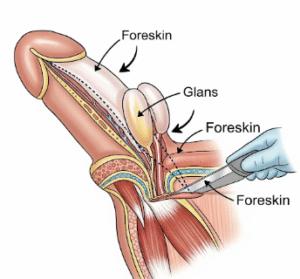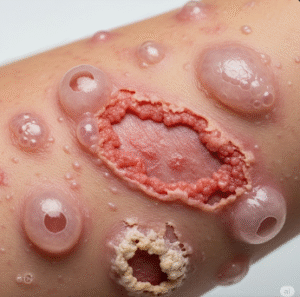What it is
Dyspareunia refers to persistent or recurrent pain during or after sexual intercourse. This condition can affect women of any age and may be linked to physical, psychological, or hormonal causes.
Key aspects of dyspareunia:
• Pain may occur at the vaginal opening, deep inside, or both
• It can be temporary or long-lasting
• Often impacts emotional well-being and intimate relationships
• Can result from medical conditions, trauma, or lifestyle factors
In Korea, treatment for dyspareunia is provided by gynecologists, urologists, pelvic floor specialists, and sexual health counselors, depending on the underlying cause.
Why it’s done
Treating dyspareunia is essential because sexual health is an important aspect of overall well-being. Ignoring the issue may worsen physical symptoms and create emotional stress.
Reasons treatment is important:
→ Improves sexual satisfaction and intimacy
→ Relieves physical discomfort and pain
→ Helps diagnose and treat underlying health issues
→ Restores confidence and reduces anxiety during intimacy
→ Prevents long-term complications such as pelvic floor dysfunction or relationship strain
In Korea, dyspareunia treatment is considered part of comprehensive women’s healthcare, with a focus on both body and mind.
Alternatives
Treatment for dyspareunia varies depending on the cause. For mild or occasional pain, some women explore non-medical alternatives.
Alternatives and supportive methods:
• Using water-based or silicone lubricants to reduce dryness
• Practicing relaxation techniques such as breathing exercises or yoga
• Trying different sexual positions to reduce pressure or discomfort
• Using vaginal moisturizers for dryness, especially in postmenopausal women
• Engaging in open communication with a partner to reduce anxiety
Note: While these approaches can help, medical evaluation is necessary for persistent or severe pain.
Preparation
Before treatment, proper preparation ensures accurate diagnosis and effective care.
How to prepare for consultation:
→ Keep a record of symptoms: when the pain occurs, its intensity, and triggers
→ Note any past gynecological conditions, surgeries, or childbirth experiences
→ List current medications, supplements, and hormonal therapies
→ Be open to discussing both physical and emotional aspects of sexual health
→ Consider bringing a partner to consultations if relationship support is needed
In Korea, many hospitals provide confidential and supportive environments for discussing intimate health concerns, helping patients feel comfortable.
How it’s done
Treatment for dyspareunia in Korea follows a personalized approach, depending on whether the cause is physical, hormonal, or psychological.
Common treatment options include:
• Medical treatments:
→ Vaginal estrogen creams or hormone therapy for postmenopausal women
→ Antibiotics or antifungal medications for infections
→ Pain management with anti-inflammatory medicines
• Physical therapies:
→ Pelvic floor therapy to relax and strengthen muscles
→ Vaginal dilators to gradually reduce tightness
→ Biofeedback therapy to improve muscle control
• Minimally invasive or surgical procedures:
→ Laser or radiofrequency vaginal rejuvenation for elasticity
→ Corrective surgery if pain is due to structural issues or scarring
• Psychological and counseling support:
→ Cognitive-behavioral therapy (CBT) for anxiety or trauma-related pain
→ Sex therapy and couples counseling to rebuild intimacy
→ Stress reduction programs integrated with medical care
In Korea, many clinics combine medical, therapeutic, and psychological approaches, offering a holistic treatment plan.
Recovery
Recovery depends on the underlying cause and the type of treatment chosen.
General recovery steps and tips:
→ Follow prescribed medications or therapies consistently
→ Avoid sexual intercourse until cleared by the doctor (if undergoing surgery or intensive therapy)
→ Practice pelvic relaxation techniques and breathing exercises
→ Use lubricants or moisturizers as recommended
→ Attend follow-up visits for continuous evaluation and support
In Korea, patients often have access to post-treatment support groups and sexual health counseling, helping them recover not only physically but also emotionally.
Treatment options in Korea
South Korea is well-known for its advanced women’s healthcare system, and dyspareunia treatment is offered through specialized gynecology clinics, hospitals, and wellness centers.
Available options include:
• University hospitals – comprehensive diagnostic and treatment services for complex cases
• Private women’s clinics – confidential, personalized care with modern facilities
• Pelvic floor therapy centers – specialized rehabilitation for muscle-related pain
• Sexual health counseling centers – combining medical care with psychological support
Highlights of treatment in Korea:
→ Multidisciplinary care involving gynecologists, physiotherapists, and counselors
→ Advanced therapies like laser vaginal rejuvenation and PRP (platelet-rich plasma) treatments
→ Government-supported healthcare covering medically necessary treatments
→ Discreet and supportive approach to sensitive conditions
→ Multilingual services for international patients in major cities
Final Note:
Treatment for dyspareunia (painful intercourse) in Korea focuses on identifying the root cause and offering comprehensive solutions—from medical therapies and physical rehabilitation to emotional support. With advanced technology, specialized care, and a patient-centered approach, Korea provides women with effective relief and improved quality of life.













